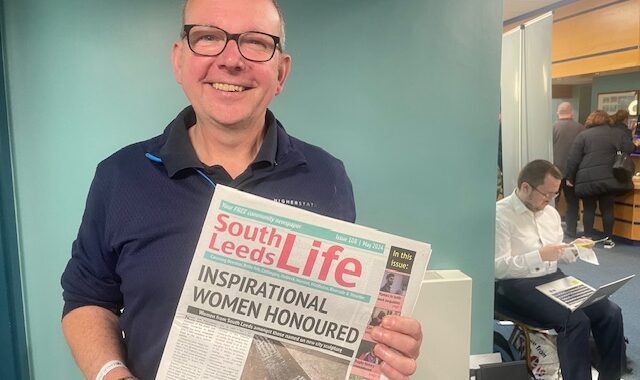Court rules are changing to make it “even easier” for people to take news publishers to court, that’s how David Wolfe, chair of the Press Recognition Panel (PRP), has described upcoming changes to the law.
These changes are part of the Royal Charter process triggered by the Leveson Inquiry, and will come into effect in November. We wanted to get to the bottom of what this means for Community Journalists – should you be concerned?
Well, it all depends on whether your hyperlocal is classed as a ‘relevant publisher’ or not. And deciding that is not as easy as you may think. There is a set of criteria, which isn’t clear-cut for the community news sector.
PodNosh wrote an excellent post on this, following a PRP consultation in Birmingham this week.
As you’ll see if you read the article, it is a complicated issue, which left some unanswered questions. Namely:
- Are most hyperlocals excluded, therefore don’t need to join a press complaints body?
- If this is right what is the libel law that now applies to hyperlocals (who pays the legal bills)?
- Does this exemption apply to student publishing online as part of their course? After all universities are not micro-businesses.
Yesterday, armed with these and many questions of our own, we attended a PRP consultation that we hosted here in the School of Journalism at Cardiff University.
What we found out: the law regarding libel will change in November for ‘relevant publishers’. If you are classed as a ‘relevant publisher’ and are sued after the changes are introduced you will have to pay their legal fees as well as your own, regardless of whether you win or lose the case.
This sounds terrifying, especially for small community news publications which are either volunteer run or very low profit. If you are a sole publisher (i.e.: only you write for your publication) you are not ‘relevant’ therefore the change in law will not affect you. If you are an editor with one or more authors, you are ‘relevant’ in the course of business (whether or not carried on with a view to profit) and therefore will be affected. When I questioned how an author is defined, Mr Wolfe said that a contributor is classed as an author.
Bloggers are a grey area – a ‘relevant’ blog is determined by editorial control, but quite how that is defined is still unclear (at least it is to me, even after asking a lot of questions about it).
How can I tell if I’m at risk?
PRP are developing the structures they need in order to receive and determine applications for recognition from independent press self-regulators. By the end of this year all relevant publishers will have to join one of these regulators or risk falling foul of the new legislation.
David Wolfe said: “We’re very conscious that the benefits of this system have to work for large and small organisations, if we don’t get it right for everybody then we won’t get it right at all.”
In essence, a relevant publisher is covered by the Royal Charter and should join a press regulator. The benefit of joining a regulator is that should a complaint be made against you it will not be dealt with in court, instead an independent body will deal with such complaints outside of the court.
Mr Wolfe talked a lot about sticks and carrots to describe the changes. He said that if you are not ‘relevant’ you run the same risk of being sued as you do now, so essentially nothing changes for you. However the carrot for you would be that if you join a regulatory body you can avoid being sued in court. So, in fact, opting in would be beneficial providing opting in is affordable for hyperlocals.
A big stick is them waved in front of all two or more person publications which are relevant – any complaint brought against you if you don’t join a regulatory body is likely to cost you dearly. So the benefit of joining is much greater.
The Crime and Courts Act 2013 defines a relevant publisher:
Meaning of “relevant publisher”
- (1) In sections 34 to 40, “relevant publisher” means a person who, in the course of a business (whether or not carried on with a view to profit), publishes news-related material— (a) which is written by different authors, and (b) which is to any extent subject to editorial control. This is subject to subsections (5) and (6).
- (2) News-related material is “subject to editorial control” if there is a person (whether or not the publisher of the material) who has editorial or equivalent responsibility for— (a) the content of the material, (b) how the material is to be presented, and (c) the decision to publish it.
- (3) A person who is the operator of a website is not to be taken as having editorial or equivalent responsibility for the decision to publish any material on the site, or for content of the material, if the person did not post the material on the site.
- (4) The fact that the operator of the website may moderate statements posted on it by others does not matter for the purposes of subsection (3).
- (5) A person is not a “relevant publisher” if the person is specified by name in Schedule 15.
- (6) A person is not a “relevant publisher” in so far as the person’s publication of news-related material is in a capacity or case of a description specified in Schedule 15.
- (7) But a person who is not a “relevant publisher” as a result of paragraph 8 of that Schedule (micro-businesses) is nevertheless to be regarded as such if the person was a member of an approved regulator at the material time.
Micro-businesses are defined in the legislation as:
- 8 (1) A person who, in carrying on a micro-business, publishes news-related material where either condition A or condition B is met.
- (2) Condition A is that the news-related material is contained in a multi-author blog.
- (3) Condition B is that the news-related material is published on an incidental basis that is relevant to the main activities of the business.
- (4) “Micro-business” means a business which— (a) has fewer than 10 employees, and (b) has an annual turnover not exceeding £2,000,000.
- (5) The number of employees is to be calculated as follows—(a) find the total number of hours per week for which all the employees of the business are contracted to work; (b) divide that number by 37.5.
- (6) “Employee” has the same meaning as in the Employment Rights Act 1996 (see section 230 of that Act).
- (7) “Multi-author blog” means a blog that contains contributions from different authors.
As you can clearly see it is not an easy task to define whether you should be in or out of the new system. And if you’re in how do you choose a regulator? What if all regulatory bodies available are too expensive for small community news publishers? That would result in you opting out meaning you risk having to pay astronomical court fees if you’re sued. Rachel Howells of the Port Talbot Magnet asked the consultation panel what if hyperlocals are stuck between a rock and a hard place – facing the risk of vexatious claims against them, and unable to afford the membership fees of regulators.
And this leaves one last question – what if no-one is accepted as a regulatory body by the time the law changes in November, what happens then?
We are trying to work our way through all the questions and will come back to you with more answers as soon as we have clarity. In the meantime you can have a look at the full Consultation Document here.
You can respond in writing by using the interactive form at the end of the consultation PDF document, via the PRP online form, or by requesting a physical copy: via Email – [email protected]; Phone – 0208 528 1596 or Post – Consultation, Press Recognition Panel, 10th Floor, 88 Wood Street, London, EC2V 7RS
The consultation closes midnight on Friday 31 July.
Image by Bloomsberries




